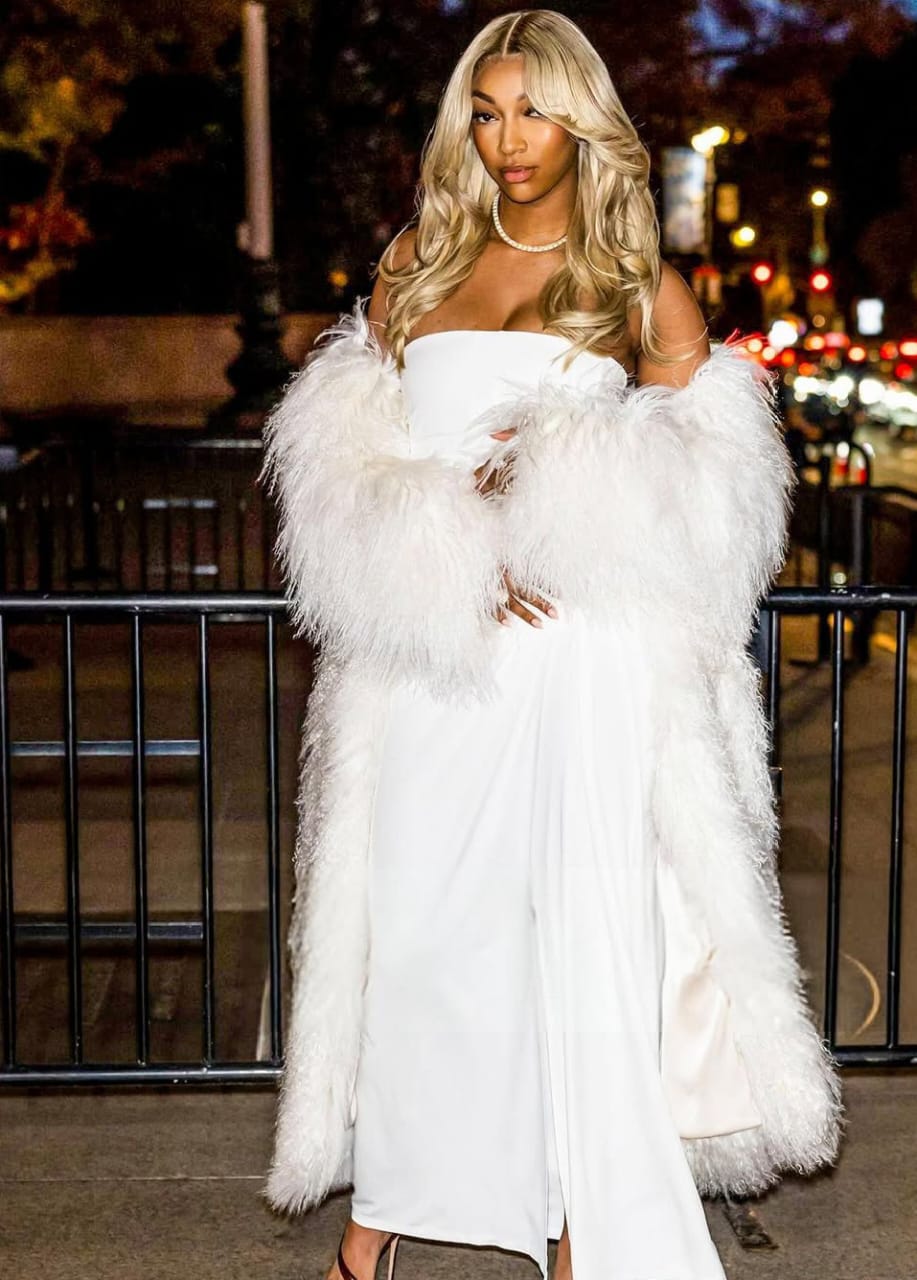In the high-stakes, hyper-sensationalized world of professional sports, where every public statement is scrutinized and every action is a potential headline, WNBA star Angel Reese has once again managed to grab the national conversation by the throat. A quote from the Chicago Sky forward has recently resurfaced, igniting a furious debate that pits her public ambition against her controversial on-court persona. The quote, a seemingly straightforward statement about her self-confidence, has been re-examined through the lens of her ongoing drama, raising a host of questions about her true intentions and what it really means to be an icon in the modern era.

The quote at the center of the storm is a powerful and revealing one. When asked in a past interview how she deals with the constant barrage of negativity, Reese offered a glimpse into her mindset, saying, “Knowing one day, people will say, I want to be like Angel Reese really inspired me.” The statement, on its own, is a testament to an athlete’s unwavering belief in herself, a quality often praised in the pursuit of greatness. It is an expression of a young woman who, despite the public vitriol, has a clear vision for her legacy.
However, in the context of Angel Reese’s public narrative, the quote takes on a new, more complex meaning. For a year, Reese has been the most talked-about and, at times, most polarizing figure in women’s basketball. She has unapologetically embraced the role of the “villain,” leaning into her critics and even wearing “Joker” sneakers on the court. Her on-court feuds, particularly with rival Caitlin Clark, have made for viral moments that have been both celebrated as good for the game and condemned as unsportsmanlike.
This is the very essence of the controversy now swirling around her quote. The public is left to grapple with two very different versions of Angel Reese. There is the one who wants to be an inspiration, a role model for a new generation of girls who look like her and want to speak their minds. And then there is the other Angel Reese, the one who unapologetically trash-talks, who some say instigates on-court aggression, and who, just recently, publicly criticized her own teammates, leading her to issue a subsequent apology. In a now-infamous interview, she was quoted saying that “she wasn’t settling for the same [expletive] we did this year and that she would “obviously” move on if the team didn’t improve.”
The juxtaposition is a stark one. How can a person who so publicly embraces a villainous role also aspire to be the kind of person others want to be like? The answer, according to her supporters, is that “Angel Reese is simply pushing boundaries,” a sentiment echoed in the user’s original prompt. They argue that she is changing the conversation around women’s sports, forcing people to talk about her, her game, and her league in a way they never have before. She’s inspiring a new generation to set their own “MEBOUNDS,” to not be afraid to be themselves and to be confident in their ability to succeed, no matter how much negativity they face. For her fans, the controversy isn’t a flaw in her character; it’s a feature of her unapologetic brand.
But for her critics, the quote is more fuel for the fire. They see it as a reflection of her ego, a belief that her way of doing things is the right way, despite the fact that it often leads to conflict. They argue that her actions on the court and her words off it are a dangerous blueprint, one that “glorifies drama and an all about me” mentality. They question whether a legacy built on confrontation is truly the kind of legacy that should be emulated.
This is the great conflict of the new generation of athletes: are they role models or are they simply masters of a social media-driven world that rewards outrage and conflict? Angel Reese, more than any other athlete, embodies this question. She is not a hero, and she is not a villain; she is something in between, a complex figure who represents the chaotic intersection of sports, fame, and a new kind of unapologetic celebrity.
As the WNBA season continues, so does the debate. Is Angel Reese a genuine inspiration who is simply misunderstood, or is her inspiring quote a clever, carefully crafted piece of her public narrative? The answer is likely somewhere in the middle, a messy truth that is far less satisfying than the headlines it creates. But for now, one thing is clear: Angel Reese is pushing boundaries and forcing a conversation, and her crown, as her teammate Ariel Atkins once said, has never been heavier.